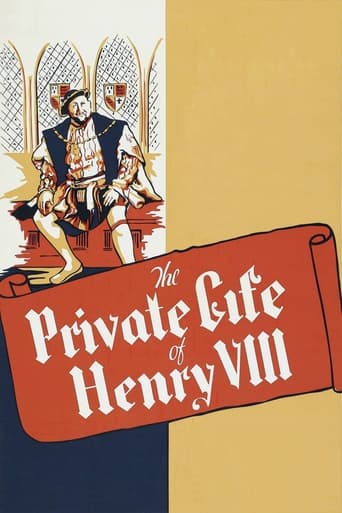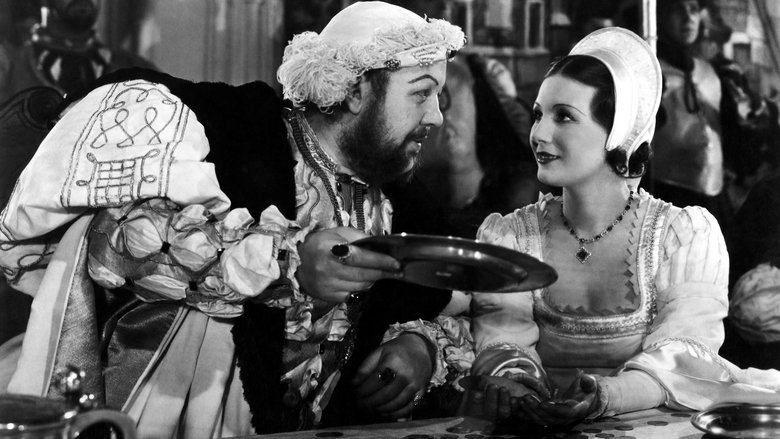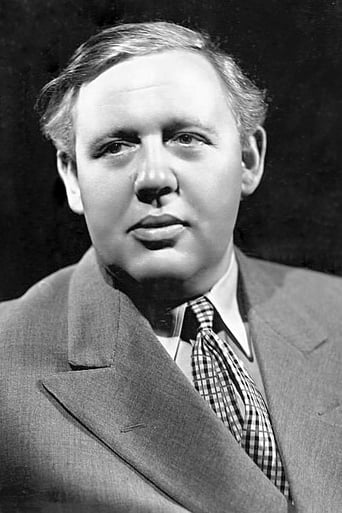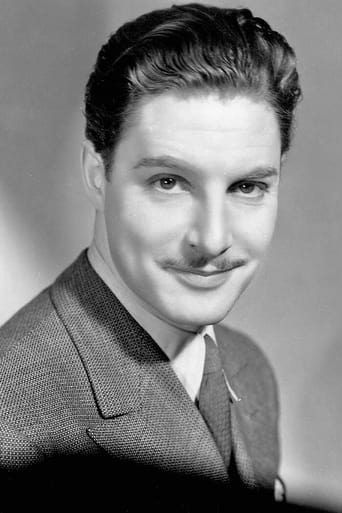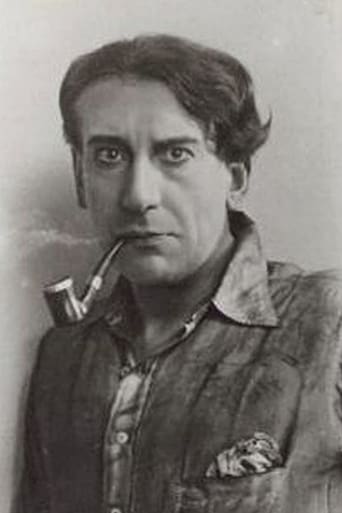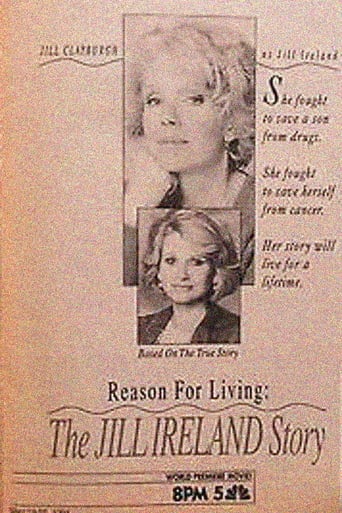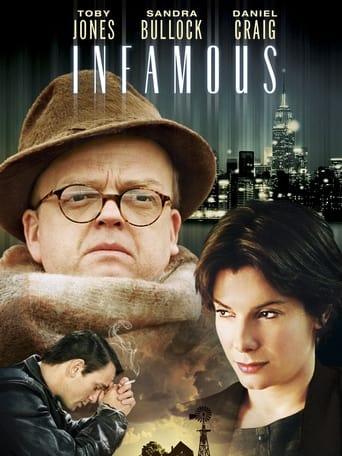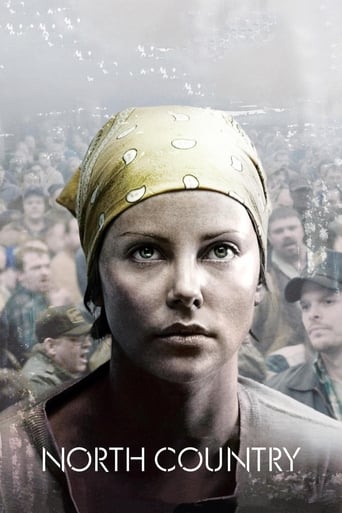The Private Life of Henry VIII (1933)
Renowned for his excess, King Henry VIII goes through a series of wives during his rule. With Anne Boleyn, his second wife, executed on charges of treason, King Henry weds maid Jane Seymour, but that marriage also ends in tragedy. Not one to be single for long, the king picks German-born Anne of Cleves as his bride, but their union lasts only months before an annulment is granted, and King Henry continues his string of spouses.
Watch Trailer
Cast
Similar titles



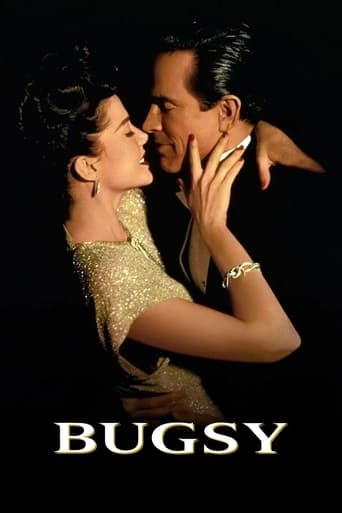
Reviews
So much average
As Good As It Gets
it is finally so absorbing because it plays like a lyrical road odyssey that’s also a detective story.
Tells a fascinating and unsettling true story, and does so well, without pretending to have all the answers.
King Henry VIII (Charles Laughton) marries five more times after his divorce from his first wife Catherine of Aragon.I have no idea why some films fall into public domain and others seem to be owned by the studios indefinitely. I am sure there is an easy answer, but it still strikes me as odd sometimes. This is one of those examples -- if this was still owned by a studio, I wouldn't be surprised, as it holds up very well.Historians could probably pick the film apart, but if you want the story of six marriages told within 90 minutes, I doubt you could do any better than this. Laughton is excellent (as always), and the rest of the cast is dynamite.
Near the beginning of "Three Days of the Condor," Max von Sydow and his gang of hired hit men brutally murder in cold blood half a dozen harmless and unarmed civilians. At the end, von Sydow's character has a little speech that is supposed to make us sympathetic. He may kill for the group that pays him the most, but he is a sensitive man, a man of principle. But that initial mass murder, starkly depicted, is an unforgivable act. It was so repellant that the fact that he might know the Louvre inside and out became irrelevant.I had the same problem with "The Private Life of Henry VIII." Charles Laughton gives a find performance, considering that it's so overplayed. But one expects a great big ham at a royal banquet. The difficulty is that the film begins with the tragic beheading of Anne Bolyne, Henry's second wife. And the preparations are dwelt on. The French headsman, imported for the occasion, spends forever sharpening his sword. There is reassuring talk about how it doesn't hurt. Happily the execution takes place off screen, as does the descending sword in "Anne of the Thousand Days," which tells part of the same story.The king isn't at all put off by his wife's death. She had to make room for wife number three. He goes through half a dozen wives. In the last scene he turns to the camera and says, "Six wives, and the last one is the worst." And we're supposed to chuckle at the bad luck of this pompous, self indulgent, murdering curmudgeon who lives by hypothetical imperatives alone.Laughton's performance can't be criticized. He shouts out orders and bullies everyone, man and woman alike. When he executes another wife for possible adultery, he weeps as he prays for forgiveness, "Mea culpa," but I don't believe it. He's never shown remorse in his life. Yet he injects some humor into the narrative. "There is no more delicacy," he complains at the dinner table, as he tears off a large piece of capon and slips the bones over his shoulder. Laughton has developed a walk that reeks of uncompromising authority, as he stomps around the castle.I guess the contemporary audience enjoyed it. I didn't like it much.
Whatever you say about Alexander Korda's "The Private Life of Henry VIII" (1933), is that it is Charles Laughton's movie all the way. Right from the opening scene where you first see Henry VIII (Charles Laughton) he seems to push all the other actors (and their are some fine ones too; such as: Robert Donat, Elsa Lanchester and Merle Oberon) off the screen. You are always looking at Charles Laughton rather than anybody else. True, some of it is dated, but the sets hold up well, and there isn't that many painted backgrounds. Despite its entertainment value, which is huge, it is also a important film in British cinema history. It was the first time a English actor won an Academy Award for Best Actor (Charles Laughton), and the first British movie too be nominated for an Academy Award for Best Picture. A very enjoyable film.
"The private life of Henry VIII" (1933) directed by Alexander Korda is of course a date in the link between a portrait of a historical character and an evanescent story in the current of events, during his reign as king who defies the Church of Rome and promoted himself as a kind of new in spirituality.The scene that it's not possible forget, it seems as evidence from the movie and this one in special, it was when the actor who incorporates the title eats chicken - without fork nor knife, barely with his fingers - and throws the bones to the back of his sit, without even looking and only with a display gesture, that took the attention of anybody whom assisting him in his solitary meals is for the others like an usually ceremony without any particular manner of a distinguished and honorable individual. As though it was nothing more than his own portrait as particular of a pioneer decision maker in an already civilized Europe, who likes women and by this builds his fame and stylish look from a hallucinated mind, who is also responsible for a so bad figure in history itself. The figure of the king is quite too much caricatured by the performance of the acting, seemingly as a mere crook above his own degree of responsibility and showing us his lack of style for the job, which means the private life for someone as him is the mediocrity of his own ability for the vital functions. But this kind of overacting is maybe much more the public portrait of a funny man with a sense of his own happiness like a Nero positive hero without burning London finally. There is a sense of decorative interiors where the king seems nasty, however as he was extremely unquiet with the function of the role, acting with some cunning before the matters of his sovereignty. Not clothed for the helm nor for the pleasure of each of the women who he took each time for an official marriage since Anne Boleyn and preparing the next revenge for the worst as it was an anticipated ritualistic anguish for the state and its death penalty in the tower of London near the Thames river.
